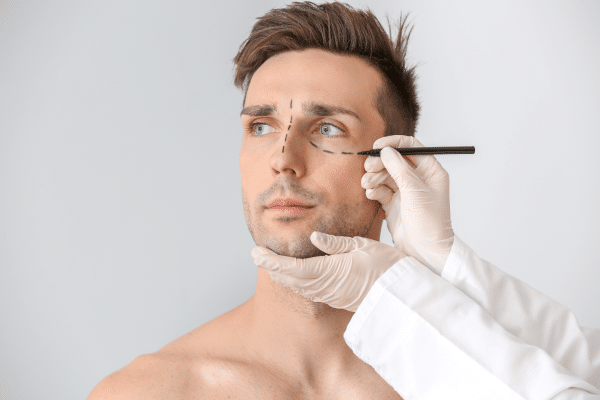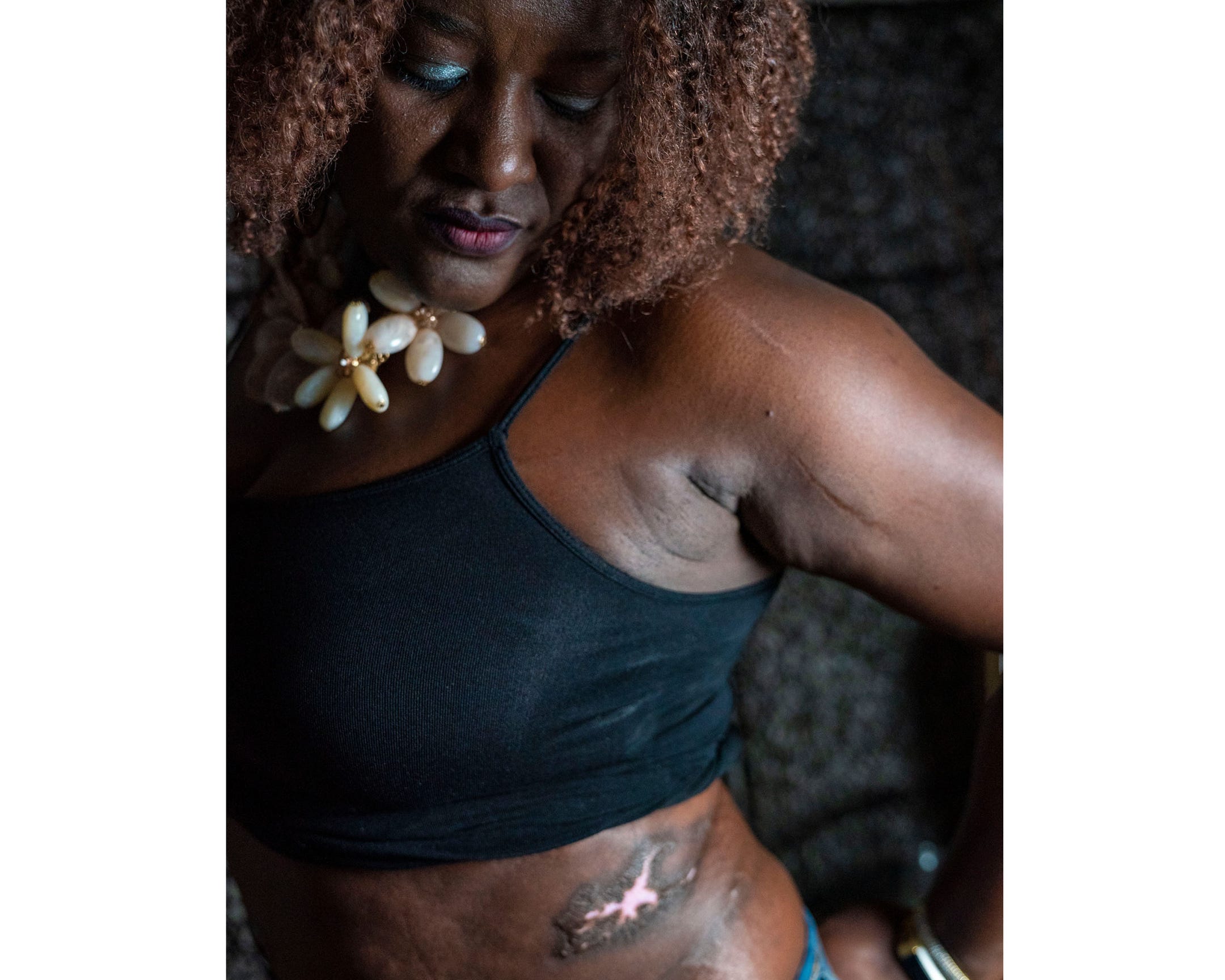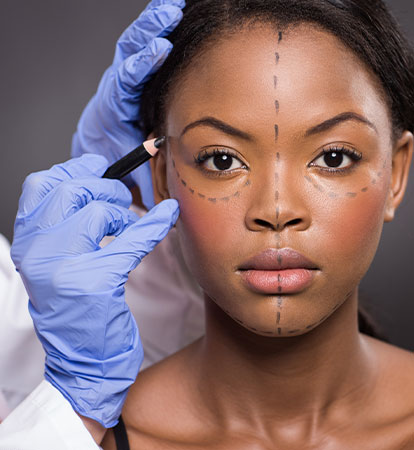Checking Out the Psychological and Social Variables That Drive People to Take Into Consideration Aesthetic Surgical Treatment as a Means of Improvement
The decision to seek cosmetic surgery frequently expands past mere visual appeals, intertwining with social and psychological characteristics that merit complete exam. Variables such as self-worth, prevalent social beauty standards, and the pervasive influence of social media merge to form individual motivations for surgical improvement. As these influences end up being significantly famous, recognizing the underlying social and psychological contexts is important. What stays to be checked out is the extensive influence these aspects have not just on individuality however additionally on wider social standards and worths surrounding appeal and acceptance.
The Role of Self-Esteem
Self-confidence dramatically affects a person's choice to pursue cosmetic surgery. People with low self-confidence typically perceive themselves in a negative light, causing feelings of inadequacy regarding their physical appearance. This negative self-perception can drive them to look for medical treatments as a technique of boosting their self-image. The wish for renovation in one's look is frequently connected to a belief that such changes will raise their overall self-respect and self-confidence.

Ultimately, the duty of self-esteem in the decision-making process relating to cosmetic surgical treatment highlights the intricate interplay between body picture, personal satisfaction, and mental wellness. Recognizing this partnership is critical for healthcare professionals to make sure that people are making notified decisions rooted in practical assumptions and emotional health.
Social Elegance Standards
Influenced by prevalent media representations and social stories, social charm standards play an important role in forming people' perceptions of their own bodies. These requirements are often identified by an idyllic kind of charm that stresses attributes such as slimness, youthfulness, and symmetry. As these suitables are bolstered via numerous networks, consisting of tv, film, and marketing, people regularly internalize these messages, causing dissatisfaction with their all-natural look.
The implications of these social standards prolong past visual preferences; they can impact self-worth, mental health and wellness, and social relationships. People who view themselves as dropping brief of these requirements may experience sensations of insufficiency, triggering a desire for cosmetic surgical treatment as a way of achieving societal approval. This search is typically fueled by the belief that complying with these perfects will boost not just physical appearance however likewise social standing and personal satisfaction.

Influence of Social Network
The effect of societal appeal standards is additional amplified by the increase of social media sites systems, where curated pictures and idyllic representations of elegance are ubiquitous. Customers are constantly revealed to filtered and edited photographs, which usually portray unattainable physical characteristics. This direct exposure grows a culture of comparison, leading individuals to analyze their own look against these commonly impractical criteria.
Social media influencers and celebs often advertise cosmetic procedures, normalizing the notion that medical enhancements are a practical methods for achieving societal suitables (plastic surgery rancho cucamonga). The visibility of these improvements can develop a perception that going through cosmetic surgical treatment is a common practice, thereby influencing individuals to think about click to read comparable interventions as a path to improved self-worth and social approval
Moreover, the interactive nature of social media permits instant responses through likes and remarks, additionally reinforcing the need to comply with preferred beauty criteria. Such communications can exacerbate sensations of inadequacy and drive individuals toward plastic surgery as a means of gaining validation. Ultimately, social media plays an essential role fit perceptions of appeal, which significantly impacts the decision-making processes bordering cosmetic surgical treatment.

Cultural Viewpoints on Appearance
Across various societies, perceptions of appearance are deeply rooted in historic, social, and financial contexts, shaping individuals' views on beauty and desirability. In numerous cultures, appearance functions as a substantial marker of identification, influencing social status, professional chances, and individual relationships. As an example, in some cultures, light skin is typically connected with riches and privilege, while others may idealize darker complexion as symbols of stamina and credibility.
Furthermore, traditional elegance standards are often continued via cultural narratives, media depictions, and household affects, causing differing perfects throughout different regions (plastic surgery rancho cucamonga). In Western cultures, the emphasis on youth and physical conditioning typically drives people toward aesthetic improvement, while in specific Eastern societies, more subtle changes aligned with traditional looks might be liked
Globalization and the proliferation of digital media have further made complex these characteristics, creating a hybridization of elegance suitables that transcends geographical borders. As people significantly browse these cultural stories, the pressure to adhere to specific appearance requirements can lead to the desire for cosmetic surgical treatment, showing a complicated interaction of cultural worths and personal aspirations. Comprehending these cultural viewpoints is vital in attending to the inspirations behind cosmetic surgical procedure factors to consider.
Emotional Influences of Plastic Surgery
Numerous individuals looking for cosmetic surgery report experiencing profound mental impacts that can significantly alter their self-perception and psychological well-being - plastic surgery rancho cucamonga. The wish for physical enhancement typically stems from underlying concerns such as low self-confidence, body dysmorphic problem, or social pressures pertaining to appeal standards. For some, the immediate post-operative stage can lead to a short-term boost useful site in self-esteem and contentment with their appearance, cultivating a sense of empowerment
Nevertheless, these favorable sensations might not check out this site be withstanding. Research indicates that while some individuals experience improved self-worth, others might encounter increased anxiousness or anxiety if their expectations are not met. This inconsistency can emerge from impractical perfects perpetuated by media representation and social narratives bordering charm.
Moreover, the psychological implications of plastic surgery expand beyond the individual. Relationships with friends and family may be stressed as social dynamics change, resulting in feelings of isolation or alienation. Inevitably, the emotional influences of cosmetic surgical procedure are diverse and complicated, calling for mindful consideration by both possible people and medical care carriers to guarantee educated decision-making and reasonable expectations.
Conclusion
Finally, the decision to seek cosmetic surgical treatment is considerably influenced by a mix of self-worth concerns, social elegance standards, and cultural viewpoints on look. The pervasive reach of social media sites additionally exacerbates these stress, advertising unrealistic suitables that people often make every effort to attain. Comprehending these mental and social factors is vital for resolving the inspirations behind plastic surgery, highlighting the need for a much more nuanced discussion bordering charm and self-acceptance in contemporary society.
The decision to seek cosmetic surgical procedure often prolongs beyond plain aesthetics, intertwining with emotional and social characteristics that warrant detailed exam. Inevitably, social media plays a critical role in shaping assumptions of elegance, which significantly affects the decision-making processes bordering cosmetic surgery.
As individuals significantly navigate these social narratives, the stress to conform to certain appearance criteria can lead to the desire for cosmetic surgery, showing a complicated interaction of social values and personal desires.In conclusion, the choice to seek cosmetic surgery is substantially affected by a mix of self-worth concerns, social beauty criteria, and social point of views on look. Comprehending these mental and social elements is necessary for addressing the motivations behind cosmetic surgical treatment, highlighting the need for a much more nuanced conversation surrounding beauty and self-acceptance in contemporary culture.